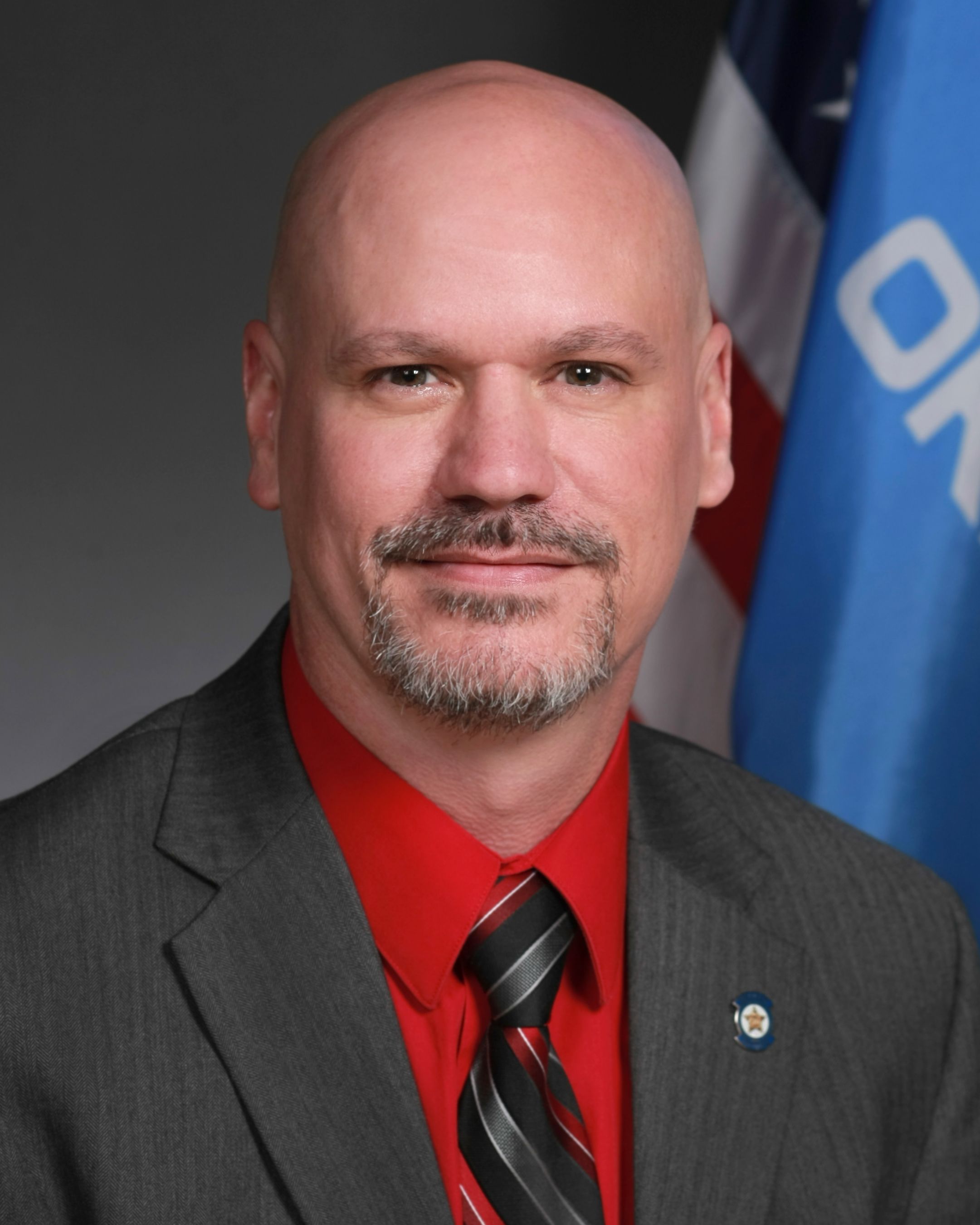Reps. Contend OCC Let College Dropout Perform Utility Audits, Challenge Another $1.5B of Customer Charges with Supreme Court
OKLAHOMA CITY – An employee of the Oklahoma Corporation Commission (OCC) who is believed to have dropped out of college as a sophomore has been performing audits of utility companies collectively worth more than a billion dollars, a brief filed Thursday at the Oklahoma Supreme Court reveals. Reps. Tom Gann, R-Inola, Kevin West, R-Moore, and Rick West, R-Heavener, are challenging OCC orders approving some $1.5 billion of 2023 fuel and purchased power costs incurred by monopoly public utilities ONG, OG&E and PSO. Their brief asks the Court to overturn the OCC’s approval orders and require new, lawful fuel audits and prudence reviews by outside, independent auditors and experts, instead of the OCC’s Public Utility Division (PUD) staff. “Fuel adjustment clause charges are passed through directly onto customers’ bills, so the utilities have already collected this money from us,” said Gann, a customer of ONG, OG&E and PSO. “State law requires audits of the utilities’ fuel charges every year. It also requires the OCC to make sure those costs were fair, just, reasonable and prudent before approving them. These laws exist to protect ratepayers, but the OCC doesn’t seem to care whether the people conducting these audits and prudence reviews are qualified or not.” The representatives’ brief includes an email from the University of Central Oklahoma confirming that the OCC PUD staff member in question does not have a degree from the university and has not been enrolled since 2015. A resume attached to his testimony shows he has been employed by the OCC PUD since 2019 and served as the OCC’s lead analyst in 2022 and 2023 fuel cases for PSO. At that staff member’s recommendation, the OCC approved more than $1.2 billion of PSO’s fuel costs passed through to customers in those cases. The brief shows the staffer also testified in recent rate cases for PSO and OG&E that resulted in almost $400 million in rate increases for customers. The representatives filed briefs at the court challenging those OCC-approved orders in August and November. All were approved by the OCC with votes by embattled OCC Commissioner Todd Hiett. Gann, Kevin West and Rick West’s newest brief accuses the OCC of violating state laws about audits and prudence reviews, and of violating ratepayers’ due process rights by permitting Commissioner Hiett to participate. ONG, OG&E and PSO were represented in these cases by attorneys who hosted a 2023 party where Hiett allegedly sexually harassed two female OCC employees and drove home drunk. ONG also was represented by an attorney whom the brief describes as “an outcry witness” to Hiett’s alleged sexual assault of a ONE Gas employee at a 2024 conference in Minnesota. The representatives argue that State Ethics Rules and the Code of Judicial Conduct prohibit Hiett from participating in OCC cases involving victims/witnesses of his alleged criminal conduct. Thursday’s brief says the OCC’s disregard for the law has shielded more than $10 billion of utility fuel charges from lawful, required audits and prudence reviews since 2021. OG&E, PSO and ONG paid some of the highest natural gas prices in U.S. history during a two-week cold snap in February 2021, incurring some $2.8 billion in fuel costs during the storm and another $1.8 billion for the rest of the year. The representatives already have challenged more than $1.4 billion in 2021 Winter Storm bonds for OG&E and PSO authorized by the OCC, with an appeal of ONG’s $1.3 billion in bonds pending. Thursday’s brief says they also plan to challenge the OCC’s fuel approval orders for 2021 and 2022 in their appeals of the agency’s 2024 fuel approval orders, two of which were filed the first week in December. “Not everyone has to graduate from college,” Rick West said. “But state employees being paid with taxpayer dollars have to be qualified for the jobs they’re hired for. This situation is not only an assault on the household budgets of utility customers; it is an insult to thousands of qualified public servants who are legitimately earning their paychecks.” The representatives’ last appeal brief, filed just before Thanksgiving, said OG&E “unduly (and possibly unlawfully) influenced” the hiring of the OCC’s financial advisor in the Winter Storm bond cases, Hilltop Securities. It also questioned how OG&E and PSO’s lender, RBC Capital, was hired to underwrite both utilities’ bond deals, when RBC’s bid was 25% higher than JP Morgan’s. (Hilltop Securities advised the Oklahoma Development Finance Authority on the bond underwriters’ bidding process.) The most recent brief describes “accounting shell games” and $100 million of OG&E’s 2021 fuel costs that remain unaccounted for. “There are serious concerns about how the Corporation Commission is operating,” Kevin West said. “We have asked the Supreme Court to intervene regarding flawed audits and due process issues, but its role is necessarily limited.” In September, the OCC’s director of administration told House members that recent challenges stemmed from staffing shortages. “In order to protect ratepayers and maintain public confidence and transparency, the Legislature will have to step in and ensure proper procedures are being followed,” Kevin West said. All told, Gann, Kevin West and Rick West’s filed and pending appeals challenge more than $11 billion in utility charges for ONG, OG&E and PSO. The full Brief in Chief for the combined 2023 fuel cases appeal can be read online here: https://www.oscn.net/dockets/GetDocument.aspx?ct=appellate&bc=1063627122&cn=CU-122991&fmt=pdf ONG, OG&E, PSO, the OCC and the Attorney General’s Office have 40 days to respond. The progress of all the appeals can be followed on the Oklahoma Supreme Court website: PSO rate case: https://www.oscn.net/dockets/GetCaseInformation.aspx?db=appellate&number=122861 OG&E rate case: https://oscn.net/dockets/GetCaseInformation.aspx?db=appellate&number=123021 ONG, PSO & OG&E CY2023 fuel cases: https://oscn.net/dockets/GetCaseInformation.aspx?db=appellate&number=122991 ONG rate case: https://oscn.net/dockets/GetCaseInformation.aspx?db=appellate&number=123348 ONG CY2024 fuel case: https://www.oscn.net/dockets/GetCaseInformation.aspx?db=appellate&number=123588 OG&E CY2024 fuel case: https://www.oscn.net/dockets/GetCaseInformation.aspx?db=appellate&number=123608

